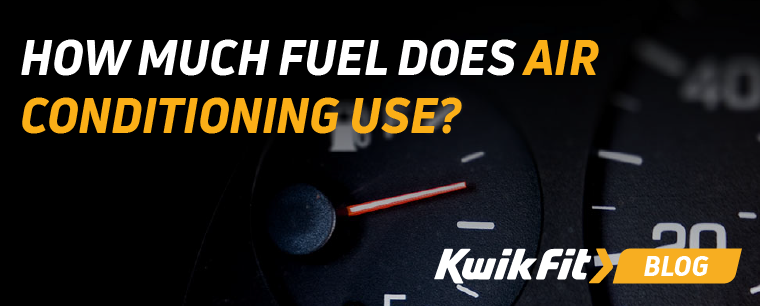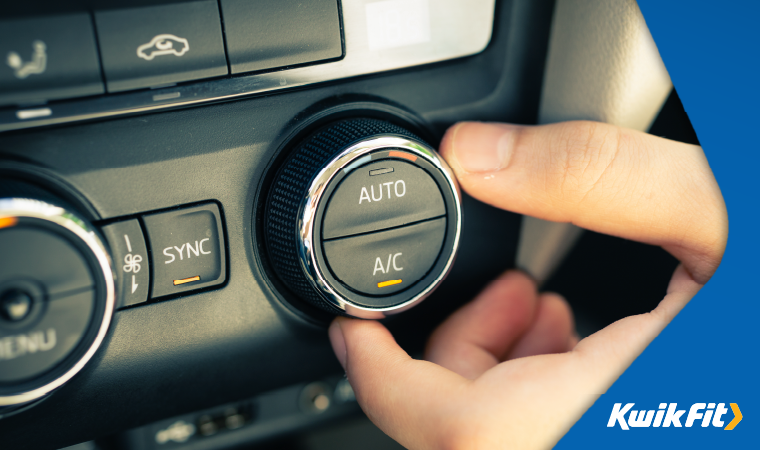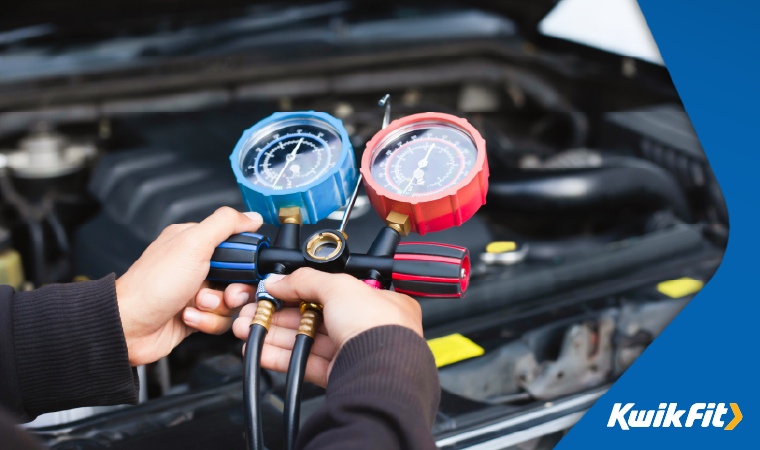How Much Fuel Does Air Conditioning Use?
Jessica Bird | Thursday 29th May 2025 5:10pm

When the weather is warm, it can be tempting to leave the air con on full-blast whenever you drive in order to beat the heat. But could this be costing you more than you think?
We often get asked about the impact of air con usage on fuel economy and, in this blog, weíll be taking a closer look. How much difference does having the AC on actually make? Could cutting back on the air conditioning really save you that much money on fuel?
Read on for an expert take on how much fuel your air con uses to keep you cool, before learning some handy tips to reduce air-con-related fuel consumption and save a few pounds.
Air conditioning and fuel consumption
Does air conditioning have an impact on the amount of fuel you use? Thatís an easy yes. The more complicated question to answer is, ďby how much?Ē.
How much fuel does your car's air con actually use?
On average, air conditioning can increase fuel consumption by between 8% and 10%. Translated into litres, estimates reveal that using your air conditioning while driving can use between 0.2 and 0.4 litres per hour.
However, in comparison to just driving with the windows open, data suggests that air con is actually more fuel-efficient at higher speeds - since driving with the windows down at greater speeds creates drag (increasing fuel consumption by up to 20%).
How does air conditioning use fuel?
Your air con system is powered by the engine, which uses fuel to run. When you switch on your air conditioning, its components put an extra load on the engine, causing it to work harder and use more fuel than usual ó namely, this is the compressor circulating refrigerant to cool the air.
Just as heated seats and rear-window defrosters use engine power (and, therefore, fuel), air con uses extra energy and requires fuel too.
When you initially set off, the air con has to work hard to bring the internal temperature down to a comfortable level. However, once the car has cooled enough, you can choose to reduce the flow rate, increase the temperature, or turn the air con off altogether.
On a long journey, itís unlikely that the air con will need to be blasting the whole way. This is why increased fuel consumption caused by using your air con may be more noticeable on a short journey.

Which factors impact how much fuel your air con uses?
The amount of fuel your air conditioning uses is dependent on a number of factors relating to your vehicle and driving habits, including:
- The efficiency of your air con system. If youíve had your air con system regassed recently and it is well-maintained, it will be working much more efficiently and using less power.
- The make and model of your car. Smaller engines can feel the strain from components like air conditioning and heated seats more than larger ones.
- Temperature-related factors. On really hot days when the outside temperature is very high ó or when you set the AC temperature to be very low ó the system draws more power, as it is working harder.
- Air con blow speed. If you run the air con on full blast, or have certain vent settings on that make the air con system work harder, it will place a greater strain on the engine and consequently use more fuel.
- Cabin size. Vehicles with bigger cabins will naturally take longer to cool down, requiring a greater effort on the part of the air con system.
- Driving conditions. If youíre using air con in traffic where your car is stopping and starting, itís usually working less efficiently than when used at steady speeds.
How to cut down on air con usage
If youíre worried about your air conditioning using precious fuel, there are plenty of smart ways that you can reduce the amount of power your air con uses ó namely by reducing your reliance on air con in the first place!
Park in the shade
If possible, itís better to park your vehicle in a shady area rather than an open one where the sun could hit it. Not only will your vehicle stay cool, you wonít need to use as much air conditioning.
Open windows when you first set off
When you first set off on a journey, itís better to open the windows for a few minutes. Doing so will remove the majority of the hot air in the cabin and, therefore, your air conditioning wonít need to work quite as hard.
Keep windows open on short drives
Despite what many people think, driving with your windows open isnít so bad on fuel when youíre going at slow speeds. Therefore, if youíre driving through towns and cities, opening your windows will save more fuel than using the air con. If youíre driving on fast roads, it is more beneficial to use the air con.
Reduce air con once your car has cooled down
Once your car has cooled down enough, the air con flow rate can be reduced so that less air is allowed into the cabin - or you could slightly increase the temperature. Both of these things will mean that the compressor doesnít have to work quite so hard.
Of course, in terms of fuel usage, itís most beneficial to drive with no air conditioning and your windows up, but on a hot day, this is likely not possible - or definitely not desirable.

How to ensure your air con system is fuel-efficient
Other than simply using your air con less, the most effective way to reduce the amount of fuel your air con uses is to maintain your air con system.
Having your vehicleís air conditioning system regassed regularly is critical for keeping it running efficiently and topped up with refrigerant ó and, as a result, drawing less on the engine when in operation. This should be done every two years on average.
When the refrigerant levels drop, the system has to work harder to produce the amount of cool air that you need. This will use more fuel, so itís a good idea to keep up to date with your air con service to conserve even more petrol.
Trust the experts at Kwik Fit
Is your air conditioning system working harder than it needs to and costing you more on your petrol bill?
At Kwik Fit, we offer a number of air con maintenance services - from a complete air con regas to a free air con health check.
Get in touch with our expert team or visit your local centre to book an appointment. And, donít forget to read the latest motoring news and trends over on our blog.
Any facts, figures and prices shown in our blog articles are correct at time of publication.
Featured Articles
Is it Illegal to Drive With One Headlight?
Saturday 19th July 2025
Wondering if itís illegal to drive with one headlight? Learn about the safety risks and penalties of illegal blown bulbs and why you should fix them promptly.
Air Con in EVs & Hybrids: Experts Answer Your Questions
Monday 30th June 2025
Does air con drain EV batteries? Can you use the air con while charging an electric car? Find out the answers to these questions & more from Kwik Fitís experts.
Why Is Your Car Making a Noise? Fixes & Tips
Friday 13th June 2025
When your car starts making unexpected noises, it can certainly be quite disconcerting; it may be nothing to worry about, but hereís what you need to know.









